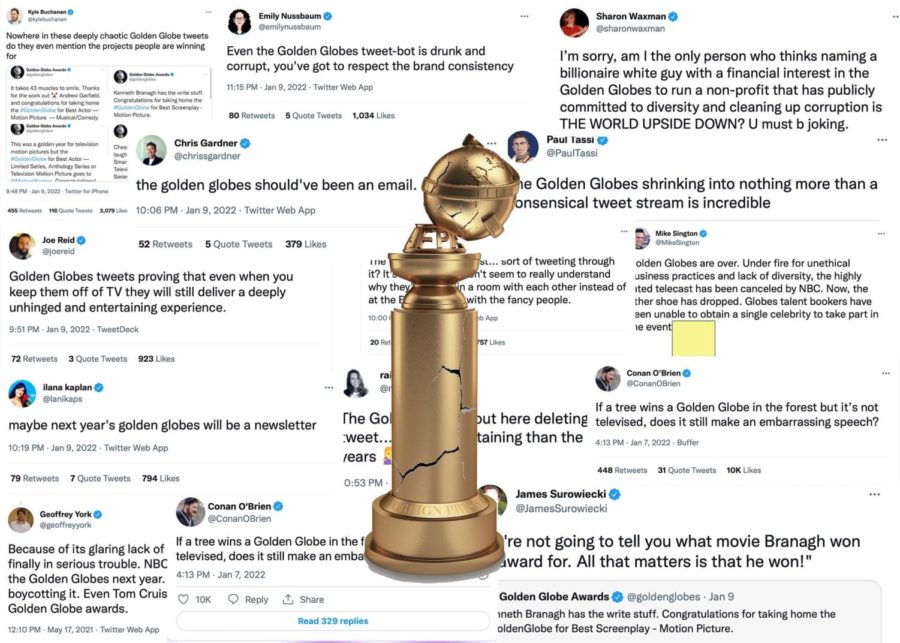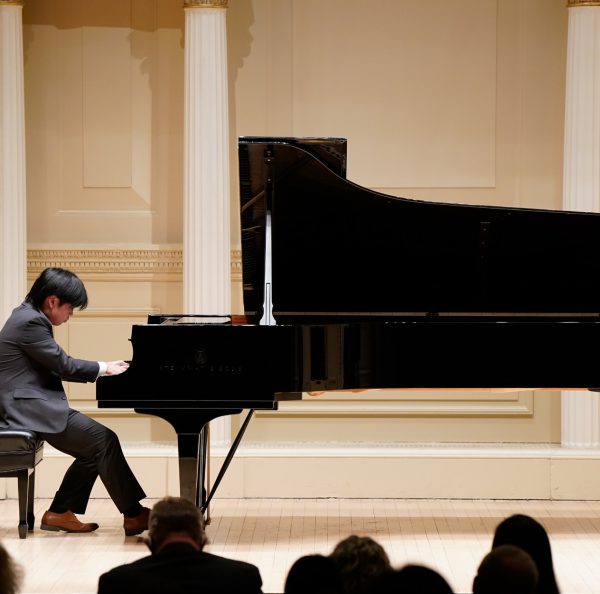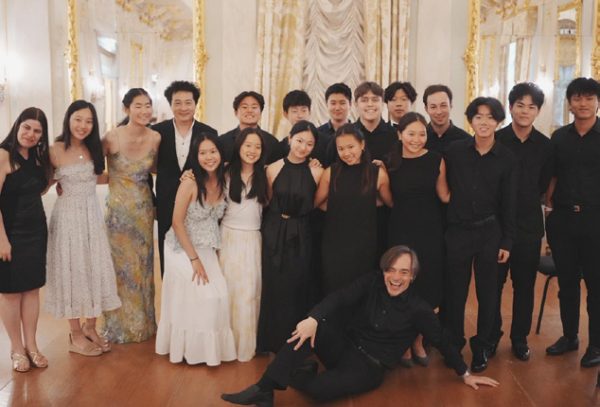The Collapse of the Golden Globes
The Golden Globe Awards, an American awards ceremony that bestows honors in film and television, took a harsh fall from grace this year as several issues spanning from racial inequality to bribery destroyed the prestigious reputation it had built since its establishment over 78 years ago. Due to the controversy, NBC dropped the award ceremony, and instead of the regular yearly broadcast, awards were announced to the public via Twitter.
The Hollywood Foreign Press Association (HFPA) is a nonprofit organization of journalists and photographers who report on the entertainment industry and select the award winners of the Golden Globes. In an article published in February 2021 by The Los Angeles Times, reporter Josh Rottenberg airsed the dirty laundry of the HFPA, exposing its racist practices. Rottenberg revealed that the organization has not had a Black member since 1987, despite the 90 ethnically and nationally diverse members. At the time of the exposé release, the HFPA claimed to prioritize addressing this issue, but it wasn’t until the publication of the article that the association sought out new members. In an email to all members of the association in April 2021, former HFPA president Phil Berk referred to the Black Lives Matter movement as “a racist hate movement.” Mr. Berk was subsequently removed from his presidency two days later, but the matter further distressed many viewers of the award ceremony and questioned the ethics of the group.
The HFPA was also under fire for bribery and fraud allegations regarding the purchasing of members’ votes. The article reports that many films and TV shows, including Paramount’s “Emily in Paris,” bribed members in order to receive awards. The network treated 30 HFPA members to an all-expense paid trip to Paris, where they stayed two nights in a five-star hotel and enjoyed numerous other privileges. Ultimately, “Emily in Paris” got nominated for best comedy over a more critically acclaimed black-led comedy, “I May Destroy You,” This development has raised eyebrows among many critics and fans.
Additionally, the HFPA faced two separate lawsuits over the past years over claims of corruption within the organization. In a lawsuit filed in 2011 by former publicist Michael Russell, Russell claimed that members were easily swayed towards voting for nominees over bribes such as money deposits, gifts, and vacations from producers or studios. In August 2020, Kjersti Flaa, a Norwegian journalist, sued the HFPA after being denied membership twice despite sufficient credentials. Although the suit was dismissed, it exposed the association’s culture of corruption within the application process and sparked the investigation by the LA Times.
Due to the ongoing controversies, multiple networks and online streaming platforms such as Warner Bros., Netflix, HBO, and Amazon Studios have all publicly dissociated themselves from the HFPA, refusing to collaborate with the organization until real change is implemented. Many actors have gone so far as to returning their Golden Globe awards, including Tom Cruise. After recounting the many press conferences where HFPA board members asked questions described as sexist and unnecessarily intrusive, American actress Scarlett Johansson said in a statement to The Guardian, “Unless there is necessary fundamental reform within the organization, I believe it is time that we take a step back from the HFPA and focus on the importance and strength of unity within our unions and the industry as a whole.”
Harry Morelli ’23, a co-head of the Film Club, commented, “It’s sad to see the Golden Globes at such a rock bottom because I have looked forward to watching it every year. The awards and nominations are a sneak preview of how the Oscars will be, and how the HFPA has reacted to the films and movies of the past year. However, if the HFPA fails to change its attitude and if they don’t hire more people of color into their organization, I can definitely see the Golden Globes dying out in the next decade or so.”
Since the release of the LA Times’ exposé, the HFPA has collaborated with several organizations including the National Association for the Advancement of Colored People (NAACP) to make further changes. While the HFPA has begun to make considerable progress towards becoming a more socially conscious organization, some continue to wonder if the reform is only an aftermath of the exposé and a means to enter the public’s good graces once again.






